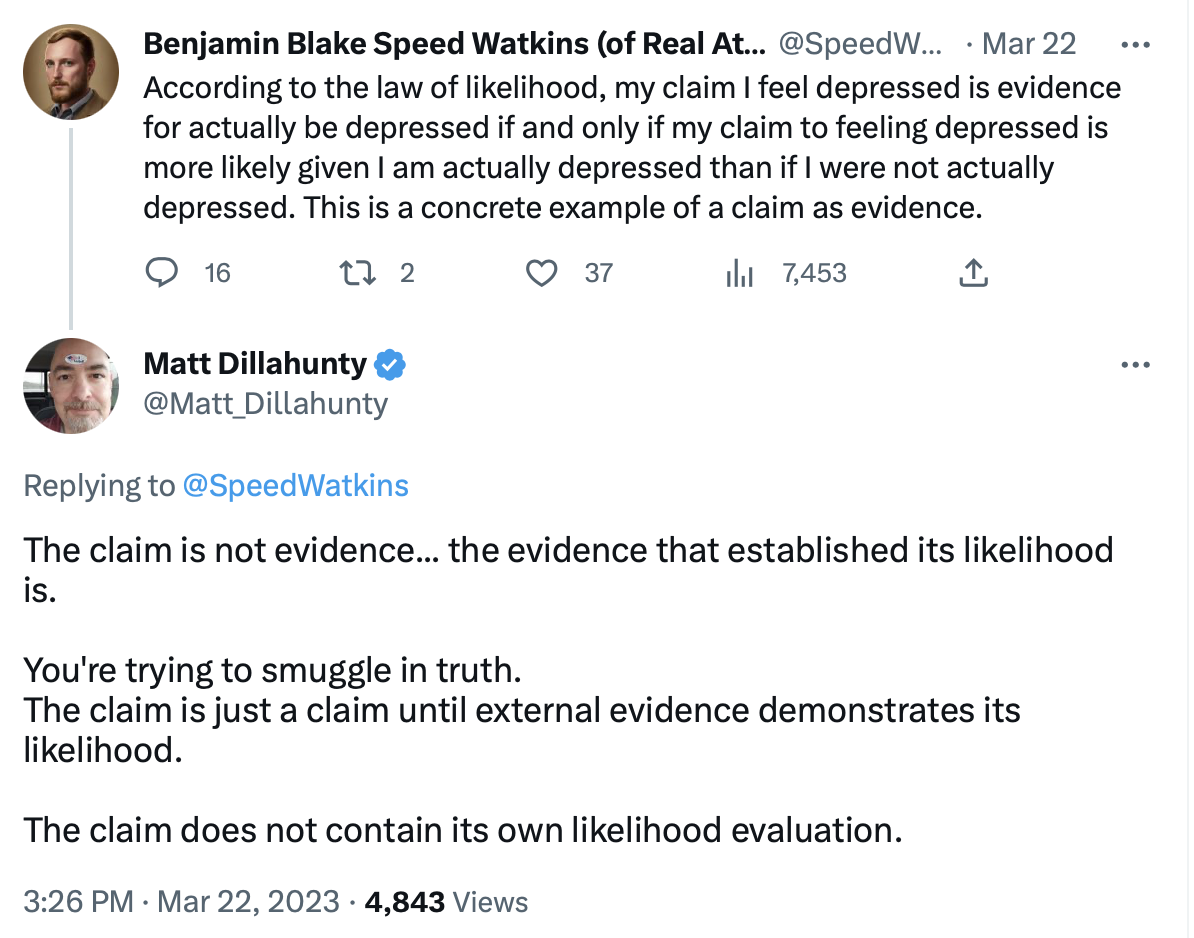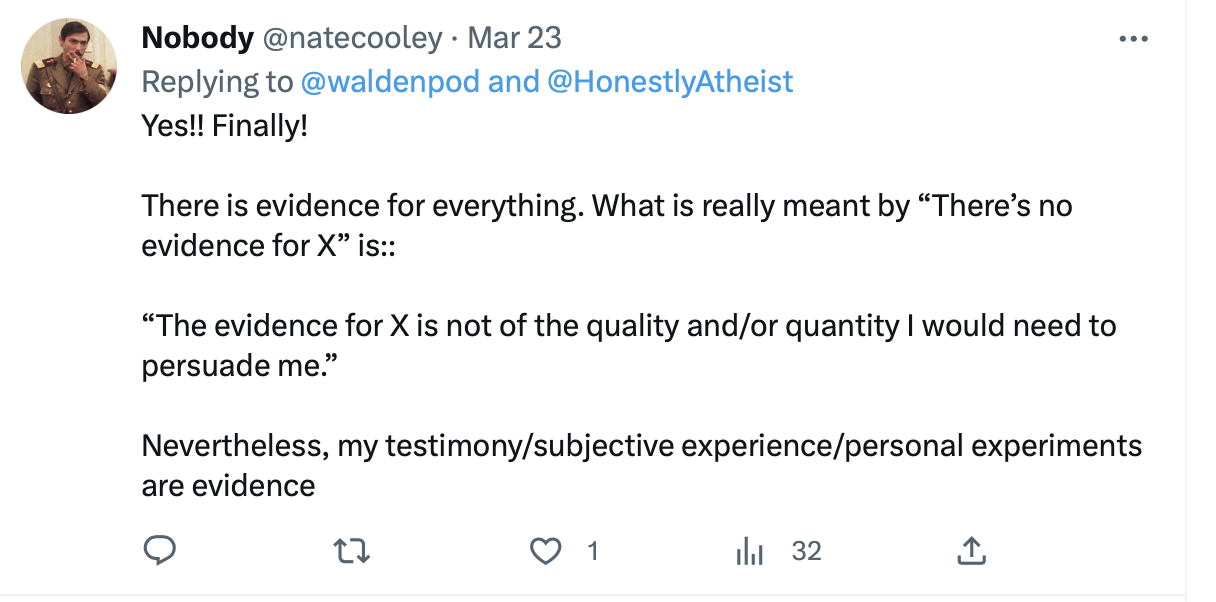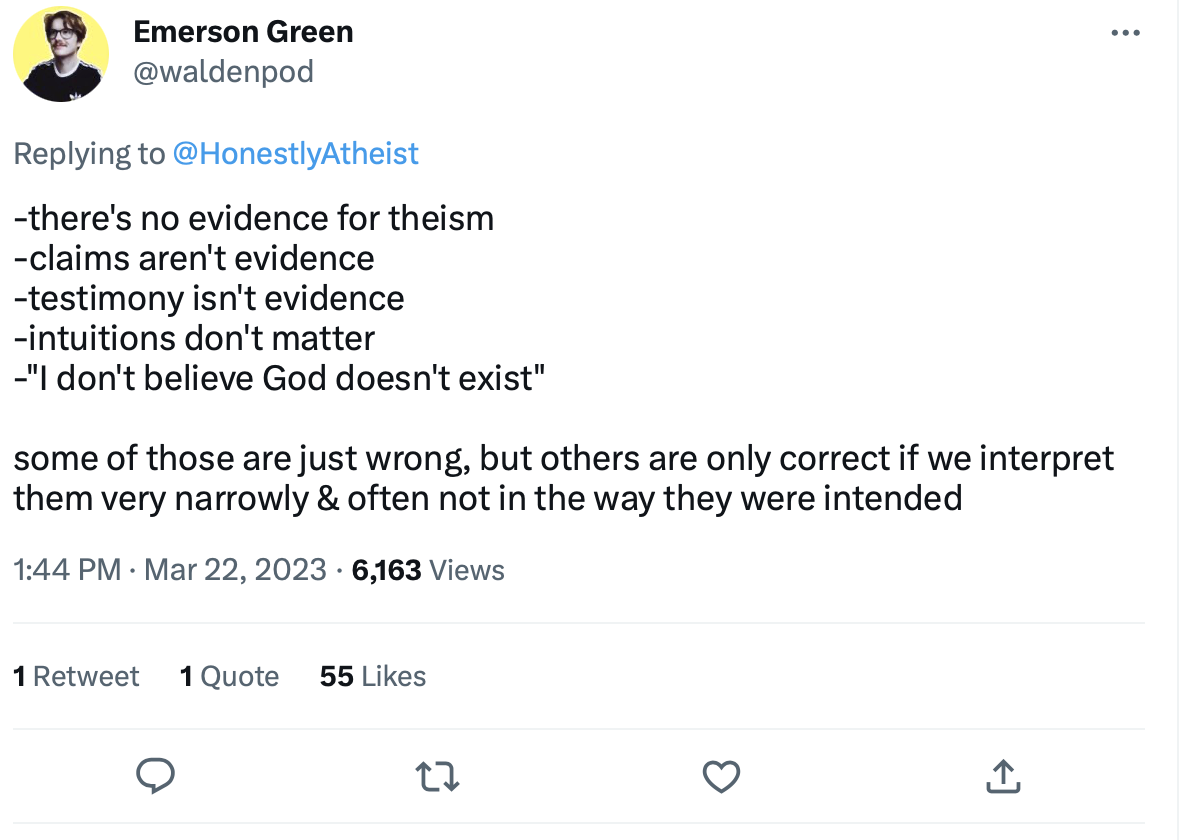
Gravitational Attraction
What would happen if two people out in space a few meters apart, abandoned by their spacecraft, decided to wait until gravity pulled them together? My initial thought was that …
In #religion

Here's my short rambling rant about the claims-evidence distinction. In a number of debates, but more famously this one with Jonathan McLatchie, Matt Dillahunty states that "claims are not evidence". It became so heated that it led to the infamous rage-quit by Johnathan. Matt later clarifies that propositions are never evidence, and he's separating the idea of a claim from its context (i.e. the person stating it).
Then there were a number of Twitter threads like:




And now Paulogia weighs in.
Like most of these arguments, it comes down to the definitions and being very careful with the vocabulary. Let's start with the definition of evidence from the Stanford Encyclopedia of Philosophy:
the following probabilistic explication of what it is for E to be evidence for H:
E is evidence for H if and only if Prob(H/E) > Prob(H).[23 ]
That is, E is evidence for H just in case the conditional probability of H on E is greater than the unconditional probability of H. Thus, the fact that the suspect's blood is on the knife is evidence for the hypothesis that the suspect committed the murder if and only if the probability that the suspect committed the murder is greater given that his blood is on the knife than it would be otherwise.
Similarly
E is evidence against H if and only if Prob(H/E) < Prob(H).
That is, E is evidence against H just in case the conditional probability of H on E is less than the unconditional probability of H. Thus, the fact that the suspect's fingerprints are not on the knife_is evidence against the hypothesis that _the suspect committed the murder if and only if the probability that the suspect committed the murder is lower given the absence of his fingerprints on the knife than it would be otherwise. Within this probabilistic model, verification (in the sense of conclusive confirmation) would involve bestowing probability 1 on an hypothesis while falsification would involve bestowing probability 0 on it.
The problem with the word "claim" is that it seems to combine both the proposition (which is not evidence) and the fact that a person is making the claim (which can add some degree of evidence). This is a matter of usage. If you can substitute in your sentence the word "proposition" for "claim" then it will not be evidence. But in a sentence like "Matt claims to have a dog" you can't do that, so the word is mixed and thus may be evidence.
The proposition “it’s five o’clock” is non evidential. Someone saying it - even if they are conveying a “fact” - does carry evidence. A fact is just that thing which has a high posterior probability. Someone making it a statement is just a recognition that for that person they have a high posterior for that statement and thus don’t feel compelled to defend it. In English if you said “So and so claims that it is 5 o’clock” there is an implied negative -- it implies that you don’t believe them. I think that’s because in most cases where someone says it is 5 o'clock, that it is such a mundane claim (priors are high) and it is unlikely that someone would lie or be seriously mistaken (alternatives are unlikely) that we need not question the high the posterior. When we stress the word claim in the sentence, it implies the negative. The reason why someone gets upset at having to defend it doesn’t have anything to do with the statement-claim distinctions and everything to do with the implied conclusion of this questioning: you think they are either lying or seriously mistaken on a trivial statement/claim. They would take offense at that — rightly so.
Now someone making the statement “Jesus rose from the dead” they may actually believe it as a fact. Is this a claim or statement? Does it provide evidence? I’d say this is a claim like the ones above but does not provide evidence for the claim because the prior is super low and the alternatives could be made more likely given this statement and no other evidence (because many people make similar statements and have always been shown wrong). This means that the statement/testimony may not increase the posterior (it may in fact lower it). Again, I don’t see the useful distinction between statement and claim except perhaps as a label where, perhaps, a statement is an indication of a high prior and a claim focuses more on the likelihood part of the probability?